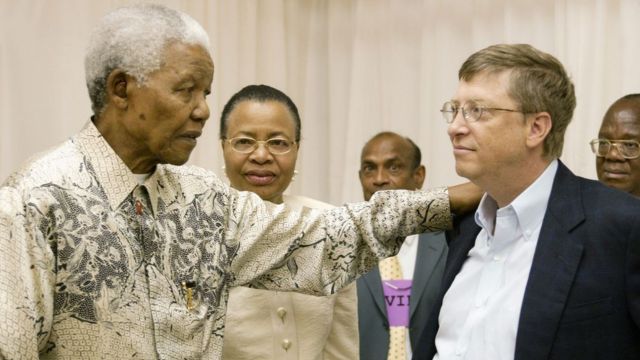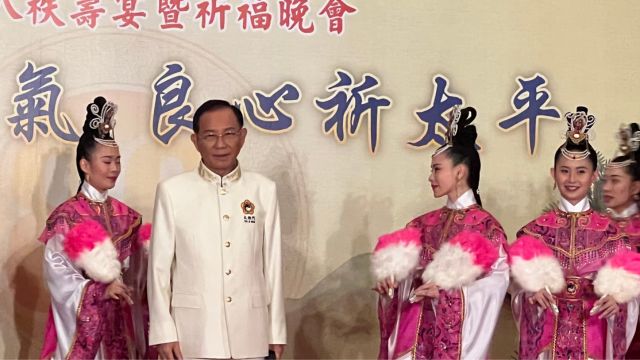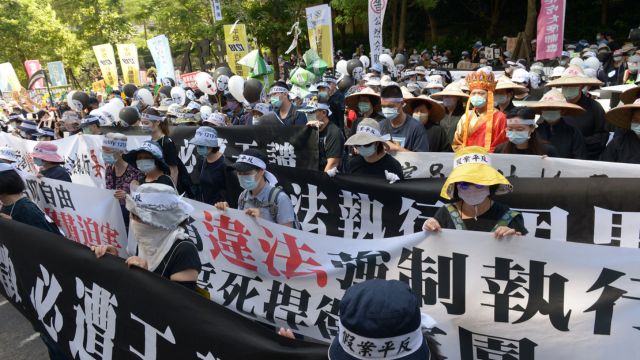Religious discrimination will end the day when human beings return to their human essence. Tai Ji Men works toward this goal.
by Marco Respinti
*Conclusions of the webinar “A Time to End All Discrimination: FoRB, Intolerance, and the Tai Ji Men Case,” co-organized by CESNUR and Human Rights Without Frontiers on July 18, 2023, Nelson Mandela International Day.

It may sound rhetorical, but our webinars always offer opportunities for reflections, especially when speakers and panelists have different perspectives on the same issues.
Take Nelson Mandela (1918–2013), for example, to whom the UN entitles its day of observance on July 18 every year since 2009. I of course do not want to appear obnoxious, but I would not be entirely open if I concealed the criticism of his actions that I put on paper on different occasions, in articles and books. Despite being saluted by virtually everyone as a hero, Mandela had in fact a dubious record precisely on democracy and human rights. Not only when he favored class warfare and revolutionary actions involving the use of violence, but also once he repudiated those later in life. His policy on AIDS, which was decimating his country when he was the President of South Africa, was in fact embarrassing to say the least.

But this is not the topic of today and let us all go beyond my precedent remarks, interpreting this day of observance at the best of its intimate nature. And while I do thank all of you for granting me the room to express my perspective here, different from others as it is or may be, let me concentrate on our goal: it is time to end all discriminations based on religion, belief, or creed.
When we make this statement, we may interpret it in a double way. We may want to express a wish, meaning that it is finally time for FoRb discriminations to end, because enough is enough, or we may mean that the time has already come, and it is now.
Unfortunately, we must exclude the latter. We all agree on this. That time has not in fact come yet. Every single day, in too many corners of the world, freedom of religion is violated. Often it is violated in a very violent way, requesting a toll in human lives. In other cases, discrimination continues for years and generates a significant amount of unnecessary suffering. The Tai Ji Men Case shows it. Religious liberty is violated, still violated. Tai Ji Men has suffered harassment and violence for decades, and this is the reason why we periodically gather to discuss its case and inform about it all persons of good will who detest injustice, oppression, and abuse of power.
So, the statement surely means that we wish and hope for a real end to all FoRB discriminations, since they have not ended yet. At this point, what does prevent that statement from becoming just wishful thinking? It is our absolute trust in the truth.
I know, this may be a disputable statement. But let me add that none of us would ever want to waste one single minute of our time, if we would not ultimately believe it. Without a firm trust in truth, why would we bother to denounce the daily violations of religious liberty and human rights and to analyze all cases we are presented with? Why would be bother to explain and repeat that Tai Ji Men is totally innocent, has been cleared of all charges by all levels of Taiwanese justice, and is an evident victim of moral and political corruption, serving as a scapegoat for some tricky and dirty design?
The resilience of Tai Ji Men and the moral talent of enduring so many sorrows shown by its Shifu, or Grand Master, and dizi, or disciples, is the proof that they trust truth. Our caring for their case is the proof that we all trust the truth as well. No doubt. But what is then this trust in truth? What do we trust truth for?

What we trust about truth is truth’s ability to prevail at last. It may take time—and more than 25 years of Tai Ji Men’s harassment and suffering is enough. It may prove hard—but against all hopes Tai Ji Men was repeatedly cleared of all fabricated accusations. Time and hardship are in fact no objections to truth. If there is one thing I have learned from Tai Ji Men, this is it.
The same truth we trust to finally prevail is the same truth FoRB is made of. Religions and spiritual ways are not all the same. What is the same is the honest spirit that animates all believers in different religions. What is really true of all religions, including religions that a believer in another religion may regard as false, is the afflatus for truth that motivates them. No matter how different beliefs and believers may be, no
matter how many conflicts they may have between each other, that single element, a thirst and hunger for truth, makes them similar, make their devotees sisters and brothers, make them human and unique.
This is the material out of which our trust in the always-prevailing truth is tailored. We do not know when and where, but truth will ultimately win and bring about the end of all persecutions and discriminations based on religion, belief, or creed. If in fact human beings would come to see that what is at the core of their own religious creed is the same ultimate desire for truth that all other believers, non-believers, and fellow humans share, there would be no more room and time for fights.
Friends and colleagues who know me know that the clothes of the utopian preacher do not fit me. I am just trying to address the ultimate philosophical question that is at the center of the common religious desire of human nature as well as of its opposite, religious persecution. While the will of many operates for religious freedom, the will of other humans, animated by the same desire but not realizing it, works to frustrate and oppose that fundamental religious sentiment.
What I am trying to say is that the time for all religious discrimination to end will come when human beings reappropriate themselves of their human essence. Convinced as I am that the ultimate essence of humans is their spiritual dimension, my probably, surely imprecise understanding of Tai Ji Men is that Tai Ji Men works toward that reappropriation of the human essence by human beings, functioning as a supreme catalyst, aggregator, and facilitator of the end of all persecutions motivated by hatred of religion. This is also my prayer.
Source: Bitter Winter

